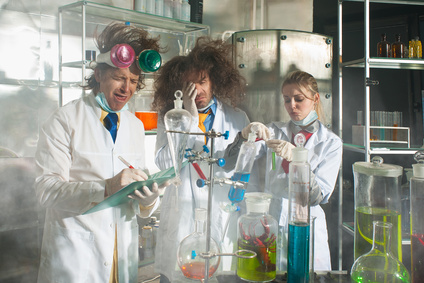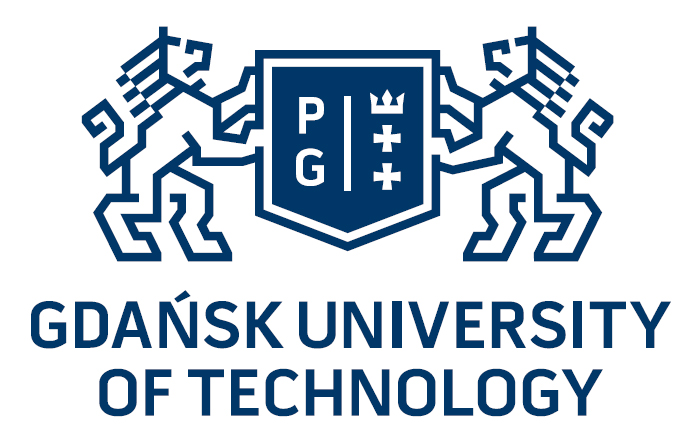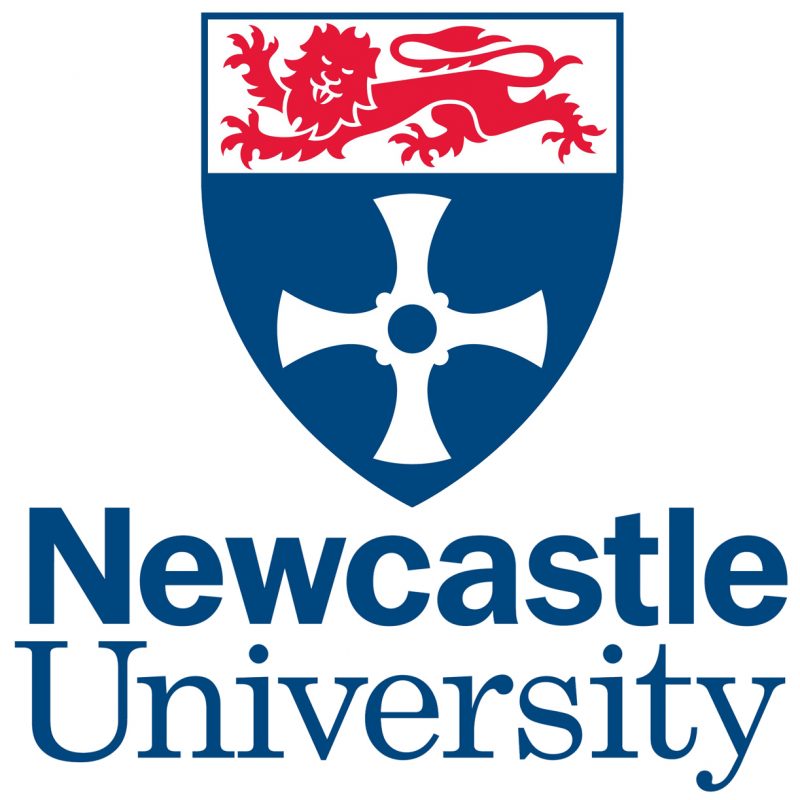__________________________________________________________________________________________________________
The PhD in Biotechnology has the mission to train highly educated students on Biotechnological Process. To achieve this goal, the PhD course combines the theoretical knowoledge with practice tools on the modern Biotechnology. The education path developes the following skills within the student:
- Advanced molecular and cellular knowledge on biological systems;
- Fundamentals of process development for biotechnological applications;
- Research metholodology aimed at developing innovation in biotechology;
- Knolwdge of legislation, deonthology and ethics issues in the field of biotechnology;
- Managment and coordination of human resourses as well as technical tools and materials involved in the development of biotechonological applications;
- Advanced knowledge and scientific practice of at least one language (preferably english) from a EU country other than Italy;
- Managment and communication of up-to-date information in biotechnology.
 The members of the Board of Teachers belong to the Dept of Chemical Sciences, Biology, Agriculture, Physics, Molecular Medicine and Medical Biotechnology, Chemical, Materials and Industrial Production Engineering. The Board of Teachers includes also several members from prestigious foreign universities. Moreover, the PhD commission always includes two foreign members. Indeed the PhD course has a strong international footprint, being subsidised on this aspect by the Italian Minister of Education and University (MIUR) and keeping several connection and relationship with excellences coming from foreign Universities or Research Institues. Thanks to a long lasting relationship between the "An-Najah National University", Nablus, Palestine and the University of Naples "Federico II" in the field of higher education and scientific research, the PhD course in Biotechnology reserves a position in each cycle for students graduated at the An-Najah University.
The members of the Board of Teachers belong to the Dept of Chemical Sciences, Biology, Agriculture, Physics, Molecular Medicine and Medical Biotechnology, Chemical, Materials and Industrial Production Engineering. The Board of Teachers includes also several members from prestigious foreign universities. Moreover, the PhD commission always includes two foreign members. Indeed the PhD course has a strong international footprint, being subsidised on this aspect by the Italian Minister of Education and University (MIUR) and keeping several connection and relationship with excellences coming from foreign Universities or Research Institues. Thanks to a long lasting relationship between the "An-Najah National University", Nablus, Palestine and the University of Naples "Federico II" in the field of higher education and scientific research, the PhD course in Biotechnology reserves a position in each cycle for students graduated at the An-Najah University.
The heterogeneity and trasversality of the professional competences point out the multidisciplinarity of both the topics and the methodologies of the research fields, which are specifically suited for industrial application. This represent a clear peculiarity of the PhD in Biotechnology with respect to the other PhD courses at University of Napoli Federico II. Moreover the PhD route is based also on several connections established by the members of the commissions with industrial environment at regional, national and international level. A specific PhD program mainly established in regional SME is also active ("Dottorato in azienda"), which fooster the connection between the PhD student and the local industrial substrate.
Moreover the PhD route is based also on several connections established by the members of the commissions with industrial environment at regional, national and international level. A specific PhD program mainly established in regional SME is also active ("Dottorato in azienda"), which fooster the connection between the PhD student and the local industrial substrate.
The PhD students in Botechnology have been sensibly appreciated in their specific research field by the academic community and private companies. As an example, the number and quality of pubblications achieved by the PhD students is very high with respect to other similar PhD courses and the Thesis level is approved by an international commission. The evaluation panel of the University has always graded the PhD in biotechnology at the highest positions within the list of all the PhD courses.
Since 2018 the PhD in Biotechnology dedicates a scholarship to the memory of Giulio Regeni.
A survey on the enployment of the PhDs in Biotechnology, over 90 people who got the title from 2011 to 2020, revealed that:
 | - The average time for employment is 4 months. (Only three PhDs had no position one year after the defense of the thesis.) - 70% found a position in Italy, 28% found a position in Europe and 2% found a position in US | ||
These data show that the training of the PhD in Biotechnology fully meets the needs of the research community (public and private) and of the business world, contributing to the training of a professional figure who does not encounter difficulties in finding a job.
The PhD in Biotechnology was born in 2001 with the mission to answer at the demand of new professionalities in Biotechnology as a new discipline involved in several research fileds in public and prvate sectors in the world. In the next years the course started to belong to the PhD school in Biotechnology, which was constitued by three routes: Industrial and Molecular Biotechnology, Medical Biotechnology, and Agricultural Biotechnology. since the 29th cycle (2014-2017) the former PhD course in Bioechnology has been reconstituted.
Active PhD Cycles:
38th Cycle: 2022-2025
39th Cycle: 2023-2026
40th Cycle: 2024-2027
41st cycle: 2025-2028
STUDENT SERVICES
_
Course Calendar
For the specific teaching offer of each cycle, please refer to the web page of the corresponding cycle: 38th, 39th, 40th, 41st
_
Organizational Chart
The list of the Committees supporting the activities of PhD students is available on this page
Orientation Activities
Orientation activities carried out by the PhD in Biotechnology can be found on this page
_
Equipment and Common Spaces
The list of study rooms, computer rooms, libraries, cafeterias, scientific and technological instruments accessible to the students of the PhD in Biotechnology is available on this page
_
FAQ and forms
A list of Frequently Asked Questions is available on this page to simplify the work of doctoral students.
1) START OF THE PhD2) INSURANCE FOR PhD STUDENTS
3) TEACHING
4) OTHER ACTIVITIES OF PhD STUDENTS
5) ADMISSION TO THE FOLLOWING YEAR OF THE DOCTORATE
6) CONFERENCES, MEETINGS
7) PERIOD OF STUDY AND RESEARCH ABROAD
8) MISSIONS AND STAYS FOR SAMPLING, CONFERENCES, SHORT PERIODS AT OTHER LABORATORIES
9) PURCHASES, REFUNDS AND USE OF DOCTORAL FUNDS FOR RESEARCH
10) INSTRUCTIONS FOR PREPARING YOUR PhD THESIS

Main Universities and Research Institutes scientifically collaborating with the PhD course in Biotechnology:
 | Aix Marseille Université Marseille, France | |
| _______________________________________________________________________________________________________ | ||
 | An-Najah National University Nablus, Palestine | |
| ____________________________________________________________________________________________________ | ||
 | Beuth University of Applied Sciences Berlin, Germany | |
| ____________________________________________________________________________________________________ | ||
 | Gdansk University of Technology (Politechnika Gdanska) Gdansk, Poland | |
| ____________________________________________________________________________________________________ | ||
 | Lisbon Unversity (ULisboa) Lisbon, Portugal | |
| ____________________________________________________________________________________________________ | ||
 | Newcastle University Newcastle, UK | |
| ____________________________________________________________________________________________________ | ||
 | Universidad Complutense de Madrid Madrid, Spain | |
| ____________________________________________________________________________________________________ | ||
 | UPenn (University of Pennsylvania) Philadelphia, Pennsylvania, USA | |
| ____________________________________________________________________________________________________ | ||
| Western University London, Ontario, Canada | ||
| ____________________________________________________________________________________________________ | ||



